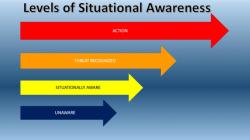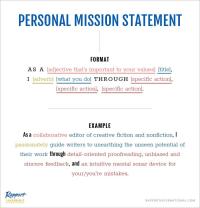How do I Find my Path in life?
Finding your path in life is a personal journey that involves self-discovery, exploration, and reflection. Here are some steps to help guide you in finding your path:
1. Self-Reflection:
- Identify Your Values: Consider what values are important to you. What principles guide your decision-making? Identifying your core values can provide a foundation for choosing a path that aligns with who you are.
- Assess Your Interests: Reflect on your passions and interests. What activities bring you joy and fulfillment? Consider how you can incorporate these into your life's path.
2. Set Personal Goals:
- Short-Term and Long-Term Goals: Define both short-term and long-term goals. What do you want to achieve in the next few months, years, or even decades? Having goals gives you a sense of direction.
3. Explore Your Passions:
- Try New Things: Explore different activities and experiences. Trying new things allows you to discover what resonates with you and what doesn't.
- Take Courses or Workshops: Consider taking courses or workshops in areas you find interesting. This can help you gain skills and insights that may guide your path.
4. Assess Your Skills and Strengths:
- Identify Your Strengths: What are your natural talents and strengths? Understanding your capabilities can guide you toward paths where you can excel.
- Skills Development: Determine what skills you enjoy developing. A fulfilling path often involves leveraging your strengths while continuously learning and growing.
5. Seek Inspiration from Others:
- Role Models: Identify individuals who inspire you. Learn about their journeys, challenges, and successes. Role models can provide valuable insights and motivation.
- Mentorship: Seek guidance from mentors who can share their experiences and offer advice as you navigate your own path.
6. Embrace Change and Uncertainty:
- Be Open to Change: Life is dynamic, and your path may evolve. Be open to change and embrace new opportunities that come your way.
- Accept Uncertainty: It's okay not to have everything figured out. Life is a journey of continuous learning and adaptation.
7. Connect with Your Inner Self:
- Mindfulness Practices: Engage in mindfulness practices such as meditation or journaling to connect with your inner self. This can provide clarity and insight into your desires and aspirations.
- Trust Your Intuition: Pay attention to your instincts and gut feelings. Trusting your intuition can guide you in making authentic choices.
8. Evaluate Your Environment:
- Surroundings and Relationships: Assess how your environment and relationships contribute to your sense of fulfillment. Consider whether adjustments are needed to align with your path.
- Cultivate Supportive Networks: Surround yourself with supportive and encouraging individuals who understand and respect your journey.
9. Be Patient and Persistent:
- Give Yourself Time: Finding your path is a process that takes time. Be patient with yourself and allow the journey to unfold organically.
- Learn from Setbacks: Embrace setbacks as opportunities for learning and growth. Persistence in the face of challenges is a key element of personal development.
10. Regularly Reassess and Adjust:
- Periodic Reflection: Schedule regular moments for self-reflection to reassess your goals and priorities. As you evolve, your path may also shift.
- Adjust as Needed: Be willing to adjust your course based on new insights, changing circumstances, and personal growth.
Remember, finding your path is a continuous journey, not a destination. It's about aligning your life with your values, passions, and goals. Stay open to new possibilities, be kind to yourself, and allow the process of self-discovery to unfold naturally.
Navigating life choices: How do I find my path in life?
Finding your path in life is a journey, not a destination. It takes time, self-reflection, and exploration to discover what you are truly passionate about and where your unique talents and skills lie.
Here are some strategies and reflections on discovering one's purpose and direction in life:
- Start by exploring your interests and values. What do you enjoy doing? What are you good at? What is important to you? Once you have a better understanding of your interests and values, you can start to narrow down your focus.
- Think about your long-term goals. What do you want to achieve in your life? Where do you see yourself in 10, 20, or 30 years? Having a clear vision of your long-term goals can help you make decisions about your education, career, and lifestyle.
- Talk to people you admire. Ask them about their career paths, their challenges and successes, and what they have learned along the way. Hearing from others who have found their path in life can inspire you and help you clarify your own goals.
- Don't be afraid to experiment. It's okay to try different things and figure out what you don't like as well as what you do like. The more experiences you have, the better equipped you will be to make informed decisions about your future.
Strategies and reflections on discovering one's purpose and direction in life
Here are some additional reflections on discovering one's purpose and direction in life:
- Your path may not be linear. It's perfectly normal to change your mind about what you want to do with your life. In fact, it's encouraged! As you grow and learn, your interests and values may change too. Don't be afraid to pivot and make changes along the way.
- It's okay to ask for help. If you're feeling lost or unsure about your path, don't be afraid to ask for help from a trusted mentor, coach, or therapist. They can provide guidance and support as you navigate your journey.
- Be patient. Finding your path in life takes time. Don't expect to have it all figured out overnight. Enjoy the journey of self-discovery and be open to new experiences.
Tips for individuals seeking guidance in determining their life path
Here are some tips for individuals seeking guidance in determining their life path:
- Talk to a career counselor. A career counselor can help you assess your skills, interests, and values. They can also provide information on different career options and help you develop a plan to achieve your goals.
- Take a personality assessment. Personality assessments can help you identify your strengths, weaknesses, and preferences. This information can be helpful in choosing a career path and making other important life decisions.
- Volunteer or intern in different fields. Volunteering and interning are great ways to gain experience and explore different career options. They can also help you network with people in your field and learn about different job opportunities.
- Read books and articles about career planning and personal development. There are many resources available to help you find your path in life. Take some time to read books and articles on career planning, personal development, and other related topics.
Finding your path in life is an important journey, but it doesn't have to be daunting. By following these tips, you can start to discover what you are passionate about and where your unique talents and skills lie.













